A responsible advertiser ensures that advertisements are compliant with the applicable legislation and, if they are in any of the five regulated categories (see my previous blog – Advertising – Can they really say that?! Part 2), that they have been pre-cleared if they will be aired on broadcast media. But what do you do if your competition is advertising in a way that you feel is inappropriate in some way, and is in violation of one or more of the clauses of the Canadian Code of Advertising Standards (the “Code”)? As an advertiser, how and to whom do you complain if you see an ad that you feel is inaccurate, or inappropriate in some way?
We ALWAYS recommend that the first recourse for an advertiser who feels that they have a valid, supportable complaint with regard to a competitor’s advertising, is to try to resolve the issue between the organizations, with communication between senior executives. Note that this step should always involve oversight by legal counsel so as to ensure that it is not misconstrued as being contrary to the Competition Act. IF this does not resolve an issue, there are various other options that can be undertaken; an advertiser, like an individual consumer, can make a complaint to the Competition Bureau, or under a number of other statutes, however Advertising Standards Canada (ASC) also has a specific procedure available to resolve advertiser complaints. Both options have their own advantages and disadvantages and each may have a place in an organization’s strategy to resolve a dispute.
Here, I will begin to explore ASC’s advertiser complaints procedures by discussing the dispute procedure itself. In my next blog posts, I will continue this discussion by exploring appeals, confidentiality, enforcement, timing and costs association with ASC’s procedure.
Dispute Procedure
To initiate the procedure under ASC, a complaint is submitted to the VP Standards, ASC, in writing, and signed by a senior officer of the Advertiser or their representative. The written complaint must set out the basis of the allegation being made and the provisions of the Code that are allegedly being violated, and be accompanied by the applicable filing fee. While it is not required, it is typically the case that the original complaint is prepared by legal counsel, regardless of whether it is to be submitted by the Advertiser or counsel on their behalf.
The process has two principal stages subsequent to a complaint being lodged and initially assessed by ASC as having raised a possible infraction of the Code. The first stage resolution involves convening at least one meeting between the parties to attempt to reach a mutually acceptable resolution of the complaint. If a resolution cannot be reached, the second stage is a hearing before an Advertising Dispute Panel that is comprised of five (5) representatives, one from each of the following groups: Advertisers, Advertising Agency, Media, Legal and Public. It is important to note that if a Hearing is convened, the Panel does not hear or consider any potential resolutions or near settlements that may have been discussed by the parties in the first stage of the process. This is a consideration worth bearing in mind as a Panel decision may be less palatable than a settlement reached between the parties (who also have a must better and more intimate knowledge of the specific industry and target group involved). The conduct of the Hearing itself is prescribed in the Dispute Procedure and entitles each side (complainant and defendant) to make an initial submission in support of their position, not exceeding 45 minutes. This is followed by a brief period, if necessary, to respond to any enquiries from the Panel or the other party, and then each party is given a chance to provide a short summary of their position.
Once the Panel has issued its decision and informed the parties, they may either comply with the decision or request leave to appeal to a second Panel Hearing (whose decision, as an Appeal Panel, is final).
An interesting side note that I will deal with in more detail in a subsequent post, is that neither the Dispute Panel nor the Appeal Panel recognize previous decisions that may have been made in other dispute procedures. In other words, there are no precedents set, so an advertiser may find that a decision in one hearing may be totally inconsistent with one made in another dispute hearing to which they were a party.
If the Dispute Panel sustains the complaint, in whole or in part, it may require the defendant advertiser to withdraw the advertising in question, or to amend it to bring it into compliance with the Code. However, the Decision will frequently provide the defendant advertiser time to make the amendments or withdrawals, even up to several months. This may be done because the Dispute Procedure is voluntary and ASC may be reluctant to be too harsh in its administration of the Procedure so as to not tempt noncompliance, however too much accommodation of a party that has been found to be in violation of the Code risks undermining ASC’s position as guardians and enforcers of that same Code.
Keep an eye out for my next posts, where I will be discussing the appeal procedures in more detail, as well as issues of confidentiality, enforcement, timing and costs associated with ASC’s procedure.

